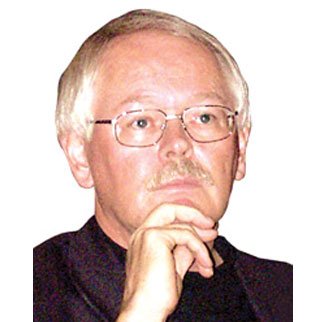
Fr. Ron Rolheiser
Ronald Rolheiser, a Roman Catholic priest and member of the Missionary Oblates of Mary Immaculate, is president of the Oblate School of Theology in San Antonio, Texas.
He is a community-builder, lecturer and writer. His books are popular throughout the English-speaking world and his weekly column is carried by more than seventy newspapers worldwide.
Fr. Rolheiser can be reached at his website, www.ronrolheiser.com.
Haste leads to spiritual blindness
Haste is our enemy. It puts us under stress, raises our blood pressure, makes us impatient, renders us more vulnerable to accidents and, most serious of all, blinds us to the needs of others. Haste is normally not a virtue, irrespective of the goodness of whatever it is we are hurrying towards.
In praise of fathers, warts and all
Each year we celebrate Father’s Day, a day on which we’re asked to get in touch with the gratitude we should feel towards our fathers. For some of us this is easy, we had good fathers; but for many it’s difficult. How do you feel gratitude if your father was someone who was mostly absent or abusive?
Our fundamental option
Several years ago, at a conference that I was attending, the keynote speaker challenged his audience in this way: All of us, he pointed out, are members of various communities. We live in families, are part of church congregations, have colleagues with whom we work, have a circle of friends and are part of a larger civic community. In every one of these there will come a time when we will get hurt, when we will not be honoured, when we will be taken for granted and treated unfairly. All of us will get hurt. That is a given. However, and this was his challenge, how we handle that hurt, with either bitterness or forgiveness, will colour the rest of our lives and determine what kind of person we are going to be.
Seeing the two sides of celibacy
Recently an op-ed piece appeared in the New York Times by Frank Bruni, entitled, “The Wages of Celibacy.” The column, while provocative, is fair. Mostly he asks a lot of hard, necessary questions.
Maturity, boldness with God
Some years ago, a woman shared this story at a workshop. She had a six-year-old son whom she had conscientiously schooled in prayer. Among other things, she made him kneel beside his bed every night and say aloud a number of prayers, ending with an invocation to “bless mummy, daddy, grandma and grandpa.” One night, shortly after he had started school, she took him to his room to hear his prayers and to tuck him in for the night. But when it came time for him to kneel by his bedside and recite his prayers, he refused and crawled into bed instead. His mother asked him: “What’s the matter? Don’t you pray any more?” There was remarkable calm in his reply: “No,” he said, “I don’t pray any more. The sister teaching us at school told us that we are not supposed to pray, she said that we are supposed to talk to God ... and tonight I am tired and have nothing to say.”
Guidelines for the long haul — revisited
Twenty-five years ago, I wrote a column entitled “Guidelines for the Long Haul.” Revisiting it recently, I was encouraged that my principles haven’t swayed during the past quarter-century, only taken on more nuance. I still recommend those same commandments, nostalgically revisited, somewhat redacted, but fully re-endorsed:
Stone jars and softer containers
In his novel A Month of Sundays, John Updike presents us with a character, a lapsed vicar, who, though struggling himself with faith, is extremely critical of his young assistant whose faith and theology he judges to be fluffy and lightweight. He describes his young assistant this way:
The Christian struggle with secularity
We live in a highly secularized culture. Generally this draws one of three reactions from Christians struggling to live out faith in this context.
Lucky sevens: the lists are endless
From the Bible to casinos, seven is often considered to be a magical, perfect and lucky number. Jesus told us to forgive those who hurt us 70 times seven times. Clearly He meant that to mean infinity. Genesis speaks of the seven days of creation, Scripture speaks of seven archangels, and the Book of Revelation speaks of the Seven Seals of Revelation. The Bible is saturated with the number seven. It would take several pages just to list the references.
Jesus shows us how to pray in a crisis
How do we lift our darkest, most depressed, most lonely moments up to God? How can we pray when we are most deeply alone, helpless and our whole world seems to be collapsing?

